- Home
- Lilith Saintcrow
Steelflower at Sea Page 6
Steelflower at Sea Read online
Page 6
“So I hear. I have also heard they kill a man, then bring him back to kill him again, slowly. Do they?”
“Never saw that.” I took another gulp of wine. It didn’t help. The screams, the grass, the blood, the yells of the tribesmen as they took scalps, or ears, or heads. Choking and coughing, retching the clear fluid of a lung-shot tinged with dark blood, Ammerdahl Rikyat had lain on my back like a breathing stone as I dragged him for the healers’ tents. You shall not die today. You owe me at dice.
The Shainakh irregulars had begun to take trophies too, near the end of my stay. One half-Hain sellsword, Green-Eyes Ch’la, took to slipping out of camp at night and returning at dawn with blood-caked, flopping ears she pierced with bone needles and wore on a red string about her neck. For luck, she said.
She died in the same attack that nearly cost Rikyat his life. The Danhai had taken off her ears, fingers, nose, toes, and her breasts, before mounting her body on a pole. We found it during the next offensive, our cavalry riding deep into the Plains and overturning their empty camps. The Danhai had faded like ghosts, leaving only bodies and cold-char marks of tiny campfires.
Mud. Blood. Death.
“Kaia?” Darik touched my wrist. My hand lay flat upon the table, spread next to my bowl, tense as if it could dig past the cloth into the wood beneath. His fingertips were warm, and he tapped once, twice. “More wine?” Those fine manners, covering my lapse in attention, as if we were at a high table during a Festival dinner. Was I grateful?
“Yes.” I should by all rights have lost my appetite thinking upon the wars on the grassplain sea, but a sellsword knows to eat when she can. Grief can wait; the belly needs its due even if the heart keens. “Shainakh has its gaze set on Pesh. I doubt they will succeed, but bleeding the young nobles and the military further may help keep the Emperor’s grasp tight enough.” Though even peasants may become restive, given enough hunger. A famine would wring Shainakh dry, and perhaps the Danhai would leave their grass and wreak vengeance upon the ancient bones of Azkillian’s realm.
“Ai, but should he take Pesh, what next?” Thanourt shook his head, rubbing a blunt fingertip over the beads in his moustache. Worrying, the customary pastime of farmers and innkeeps alike.
“It might even be good for trade your trade, Nansouk’s-kin. They will pay tribute until one of their own warlords gets restless. I have not passed that way in years, no doubt the players have changed. If Khma no Harvril is still the fire god’s mouthpiece, they may even win a battle or two.” That reed-straight, sword-rigid prince had defanged the temple priests and their wandering naked holy-talkers, and word had it some regarded him as a living flame kindled by their jealous, crackling god.
“Him? He died two summers ago. The mouthpiece is now one of the Chmi, a stripling brat who plays with poison. Good at it, too, to survive that nest of roasters.” Thanourt did not rub at his wrists. He seemed to have forgotten the scars, and that was fine to see indeed.
“Hm.” I settled in my chair, staring at my neglected bowl. Thanourt would report any lack of appetite to his husband, and a scolding from that mountain of a white-clad fishmonger was something I could do without. Still, my belly needed a moment to settle. “How far are their traders bringing new slaves from?”
“The usual places. No change there. The doors on the Street of Collars still abide.” He did not turn ash-pale; that was good to see as well. Time had spread a healing upon him, more surely than any fleshstitcher or helpful witch.
Instead, I suppressed a shudder. There are no beggars on the Street of Collars. They learn early and well to stay away. “Then Pesh isn’t expecting Azkillian to be serious. Perhaps they’ll marry a princess off to buy an alliance, Azkillian has a few sons by his concubines. But Pesh...Chmi, hm? I don’t know any of that clan, even by rumor.” By the Moon, I never wished to visit Pesh again.
“Pious bastards, all the same.” Thanourt spread his hands, his pinkish palms scarred with fine white well-healed lines. “Is the chaabi not good? Subo will be heartbroken.”
I picked up my bowl. “The thought of Pesh curdles my appetite, Thanourt. But not for long.”
“You have traveled that far?”
You should know, you met me not three days after I left. “The capital, once or twice. Slim pickings, no Guild there. All their thieves are freelance, and jealous of outlanders.” I had been forced to assassination to gain enough coin to travel onward, and after two commissions had decided to leave. Pesh is strange, with its caged fires and naked holysingers with their long matted hair in the street, singing to their god of fire. All flame is sacred to them, meant to be held behind latticework or pierced metal. An unshielded candle, a campfire—those are somewhat blasphemous. The holysingers rave of their divine one’s love and guidance, and in the next breath how all living creatures are his abject slaves.
“Ah. Yes.” He waited for me to begin eating enough, his anxiety easing as I applied myself with flatbread and a long satisfying slurp. “Was your crossing hard?”
“We tangled with pirates—Scoryin, or at least they wore his flags. They had a windwitch, and the storm followed us. We sailed late.”
“Indeed you did, the Night of Honey is two sevendays away.”
I caught the subtle hint. “Before then we shall be settled in a villa uphill for the winter instead of keeping rooms you can charge double for during festivals, never fear.”
“You are welcome to stay, Kaia-luaha.” The honorific flowed easily from his tongue, a step up from the hanua. The latter was attached to a grown woman out of politeness, but the former is the closest thing Antai has to a noblewoman. “I have not forgotten what is owed.” It was his turn to set his bowl aside, and I shook my head, my braids firmly in and the memories of that bloody afternoon so many years ago echoing. The sounds, the reek, the child’s dark wide-open eyes, vacant with death, his swollen tongue protruding, and the slaver grunting atop the tiny body lashed to a timberhorse...
I had not gutted a man and left him before that day. I had thought denying a painless end not in my nature.
I found out differently in that instant. That particular slave-trader had deserved it, and what little guilt I felt for that murder was merely that I had waited a few moments before striking.
Did Ammerdahl Rikyat deserve his death too? The question clawed at me. In the heat of battle, it is in the hands of the gods—this one dies, this one lives, it is beyond an individual’s power. Assassinations are slightly different, but still meant to be quick and relatively painless, and I chose my commissions with care. To be quick and ruthless is one thing.
The arrogance of meting out a slow painful end is another.
“No,” I said, gently enough. “I would not burden you, Thanourt. I am glad to see you married, looking so fat and placid.”
“We are not all meant for a life of excitement,” he intoned, and hearing my own long-ago words from his mouth made a small, unwilling laugh rise, like a bubble under a ship’s hull. It broke upon my lips, and I did my best to soothe Thanourt and do justice to his husband’s cooking at once. The rest of the news was interesting, but nothing in it touched upon any raw memory. Darik was silent all through the remainder of the meal, and afterwards asked only where I wished him to sleep.
Perhaps I should not have, but I pointed him to the bed. I took a blanket to the floor next to the fireplace. At least it was warm, and there were no rocks or ship-heaving underneath. He asked no questions, but then again, he would not need to.
Now we both knew I had left Ammerdahl Rikyat to die.
Dutiful
The next morning dawned clearer and cool, and D’ri was awake before I surfaced from more restless dreams. Consequently, who else would accompany me to select a villa? Redfist was still snoring, Gavrin left at dawn for some nebulous business, Diyan was too young, and Janaire and Atyarik were behind their own closed door, no doubt glad of the privacy. I could not leave a s’tarei behind like a brace of saddlebags while I went marketing. Besides, when dealing wi
th land agents in Antai, tis best to bring along a witness.
“Small,” he said, examining the stone block topped with tiles, its sharp defensible lines shouting its age—before Antai ruled its own hinterlands, it was too valuable to be left in peace by surrounding warlords. A clatter of hooves and carter-cries splashed against the outer wall, but the garden courtyard was quiet enough. “The roof is sturdy, though.”
“That is a blessing. Winter rains are harsh, here.” For once, I would be watching them from relative comfort behind a window. It was a novel and extremely welcome thought.
“As harsh as in Anjalismir?” He sounded merely curious.
I did not flinch at the name of my childhood home. “Winter there is snow, not rain.” Which he would know as well as I. Perhaps the silence wore on his nerves, as well.
“Does it snow here?”
It was a normal question from one who had not traveled to this corner of the world before. Why, then, did I sense trouble looming, like the Shelt’s storms waiting to sweep inland? “Not so much, close to the sea. They say that under the Pensari sometimes the bay froze, but others disagree. Do you prefer this one?”
“The house? The other, with the practice-ground...though I liked not its foundations, they were freshly plastered.”
“So you noticed. Sharp eyes, on my s’tarei.”
Could I call him that, without a pinch of guilt just under my breastbone? I was not what is prized in adai, I could not forget as much even for a moment. Though Darik’s expression relaxed slightly, as he studied the roof beams. The agent was taking his ease in a hired dabui outside, probably wishing we would invite him to a luncheon. In return he might suddenly remember a jewel of property instead of the ones he had shown us so far.
Business takes time, the proverb ran. Or, a rich man takes a long season to move his bowels. They mean the same thing.
I was just about to congratulate myself on setting my princeling at ease when he dropped his chin and gave me a sharp, level look, his mouth a thin line and his dark eyes afire.
“I would ask you a question, adai’mi.”
So I was right. Trouble. I told myself it could very well be a simple, commonplace bit of business. More inquiries about the city, about the inn, about this patch of the Rim. “Yes?”
“Was he your lover?” He used the most polite term tradetongue had for a whore’s patron, but the G’mai words around it gave the context. There is no word for adultery in G’mai, or for a lover who is not your twin. There is little need.
What? “Who?”
“Your Rikyat.” His lip did not curl, but I suspect it was only through sheer force of will. He still did not look at me, instead studying the view of Antai’s lower hills, visible over the top of a stone wall trailed with ambitious vines—they looked decorative instead of useful, the broad leaves turning crimson and gold with the advent of harvest. It looked related to Thasonni grapevines, but without the distinctive pink threading through the leaves and stems. I could identify edible and medicinal; the ornamentals were of no use. The Shainakh goddess of grain and grape, slaughter and fermenting, would frown on such a thing as a useless plant in a garden. Which was no worry of mine, since the Moon is jealous of her children and keeps them from the influence of other gods.
That same harvest-goddess had been behind Rikyat, they said.
I cleared my throat, suppressing an urge to spit as if he was a fellow sellsword prying at me. “No. I owed him a debt, tis all.”
A muscle in Darik’s cheek flickered. “What of the barbarian? Was he?”
The sense of the world slipping away underneath me returned, as if the Lan’ai had not yet loosed its grasp upon my legs. A s’tarei did not speak so. The word for jealousy in our language cannot be applied to people, only to possessions and some few intangibles—political power, perhaps a talent. I might have laughed, if my hands had not tensed, wanting to curl into fists. My anger, or his? “I hardly had time. And again, I owed him a debt, having picked his pocket and caused him some trouble.” My throat was dry. I fixed my gaze to the same point he seemed to be staring at, a particular crimson leaf large enough to hide a hand. Perhaps it was a grapevine after all, though it bore no fruit this year.
A muscle flicked once on his shaven cheek. S’tarei do not wear beards. “Am I a debt? Do you feel you owe?”
How could I answer that? A s’tarei is a gift from the Moon, just as an adai is. “More than I can repay.” My stomach had turned to a knot, as if I were facing my first pitched battle, again. Except there was no dust, no mud, no screaming of horse or sellsword, no reek of cut bowel or iron tang of blood. Merely a neglected ruin of a once-pretty garden. Weeds poked through gravel and crowded the flagstones, and though the roof was sturdy one or two of the rooms were much damper than I liked.
No. This place would not do at all, especially if I had to daily pass over a patch of earth that had held this conversation.
“D’ri...” How on earth could I explain? “You must understand. For years I was the only G’mai who walked alone. I knew I was flawed. Such knowledge leaves a mark.”
He shook his head slightly, and even with that mutinous glow to his eyes and line to his chin, he could have been a statue—had the Folk been in the habit of making them for the arrogance of our ruling family. In Shaituh, images of Azkillian’s portly scowl were everywhere. There were even temples built to the God-Emperor, a colonnade of marbles bearing the likeness of each crowned despot.
“What I understand,” he answered, “is that I should have left earlier. But I was dutiful. I did what was required of me, and it almost cost my adai.”
At least now I knew he had a temper. It was more comforting than it should have been, to push him into such irritation. “That is past. It does no good to—”
“Are you shamed by your s’tarei? I was obedient, instead of seeking you. Perhaps I should have matched your stubbornness with my own.”
“You are doing as much at this very moment,” I muttered. It was not helpful, and neither was the complex, bubbling heat welling up inside me. Had it been a fellow sellsword, I would have been walking away or reaching for my dotani. “Mother Moon, what do you want of me?”
“Nothing I may have, apparently.”
A nest of swallows under the roof woke, and wingbeats pulsed elsewhere as well. City-noise—carts rumbling, animals lowing or shrieking, voices raised or low—filled the short painful quiet. I turned, my bootheel stabbing a yellowflower weed, and stalked for the entrance. This house was not large enough, and come the rainy season we might be standing in water instead of it dripping upon us from an ill-patched roof.
“Kaia.” He did not say it very loudly, and I pretended not to hear, my teeth aching as my jaw bore down.
There were still three villas to view, but I paid the agent copper for his time and sent him away. The long trek back to the inn, with Darik’s presence at my shoulder, was twice as uncomfortable as setting out had been. He said my name once more, but I did not respond.
If I had, I might have said something unforgivable.
Until You Know
The quietest corner of the commonroom was awash with gasping, but it was merry instead of pained. Redfist spread his hands, his blue eyes twinkling above his beard—now oiled, and beaded as they do in Antai, with bright blue clay beads. “And there I was,” he said, while Janaire laughed helplessly, jewel-bright tear tracks on her soft cheeks. Diyan giggled next to me, his small body quivering with amusement, and even Atyarik was smiling ruefully. “Holding a cow’s arsehole closed so the guts wouldna spill, while my father and Uncle Dorak roll upon the floor, mucked up with blood and everything else, and at that very moment me mam arrives.” His voice lifted slightly, into a lilting caricature of a woman’s. “And what is all this now?”
Darik snorted, a short sharp sound of repressed merriment. Gavrin, licking grease from lamb couria off his fingers, almost choked on a mouthful of flatbread and pushed his chair back, tossing his hair with a quick habitual flick.
He was trying to eat and tune his lute at the same time, and almost injuring himself with either in turn.
“So, me mam leans down,” Redfist continued, and I caught myself in a hiccoughing laugh, sharp wine burning in my throat and up into the back of my nose. “And she grabs both of them by the hair, and knocks their heads together, like so!” He slammed his fists enthusiastically against each other, thumping the bottom of the table with his knee for good measure. I tilted my head back to force some of the wine out of my nose and back into my throat. Irrigating one’s head with Antai red is a painful experience. “So now I am holding a cow’s arsehole, Uncle Dorak is cursing, my father bites Dorak’s hand, and my mother is crying at both of them to stop acting like bairns.” He took a deep breath. “And then...I couldna help myself.”
Another pause. He raised his tankard and took a pull of ale. The table held several denuded dishes, and several ears in other areas of the commonroom were listening now. The tall red one had a knack for telling stories.
“No, I couldna help myself,” Redfist said, slowly, spreading the fingers of his free hand to illustrate. “I let go.”
A roar of laughter, table-pounding, and groans echoed through the commonroom. I pitched sideways, my belly aching from the merriment, and fetched up against D’ri’s shoulder. He didn’t seem to mind, bent over slightly with his head down as he shook. Janaire’s tears gleamed afresh, and she held her sides; Atyarik uttered a short bark of amusement. Diyan almost slid under the table, and Gavrin choked again, his fingers stuttering on the strings and producing a squawk that only added to the hilarity.
The great swell of noise retreated, but Redfist had his flagon held high, as if signaling for more ale. “I learned a philosophic lesson then, my friends, and I learned it well.”

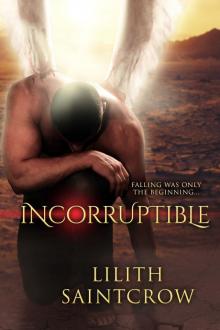 Incorruptible
Incorruptible Finder (The Watchers Book 6)
Finder (The Watchers Book 6)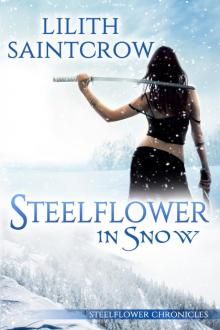 Steelflower in Snow
Steelflower in Snow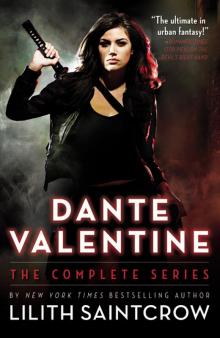 Dante Valentine
Dante Valentine Redemption Alley-Jill Kismet 3
Redemption Alley-Jill Kismet 3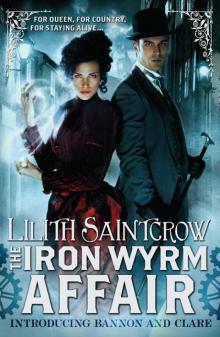 The Iron Wyrm Affair
The Iron Wyrm Affair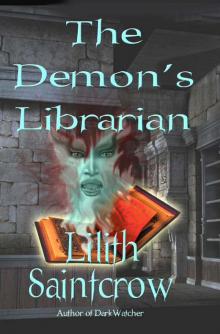 The Demon's Librarian
The Demon's Librarian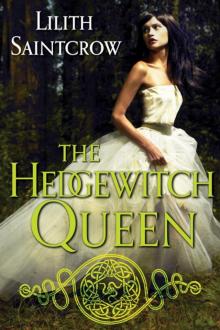 The Hedgewitch Queen
The Hedgewitch Queen Redemption Alley
Redemption Alley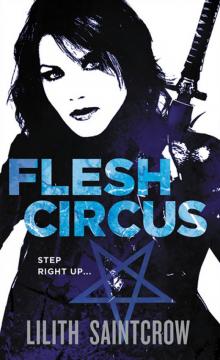 Flesh Circus
Flesh Circus Saint City Sinners
Saint City Sinners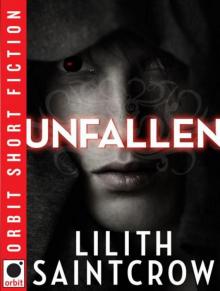 Unfallen
Unfallen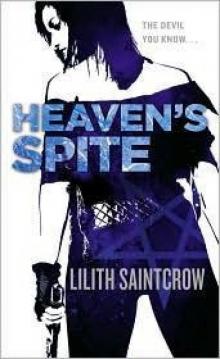 Heaven’s Spite
Heaven’s Spite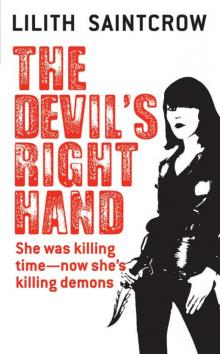 The Devil s Right Hand
The Devil s Right Hand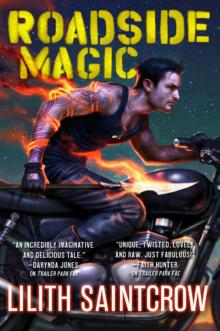 Roadside Magic
Roadside Magic Steelflower at Sea
Steelflower at Sea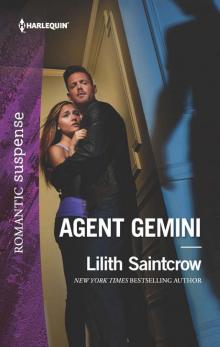 Agent Gemini
Agent Gemini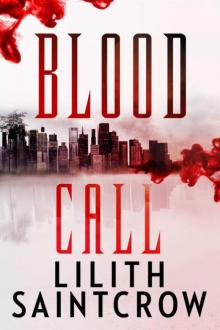 Blood Call
Blood Call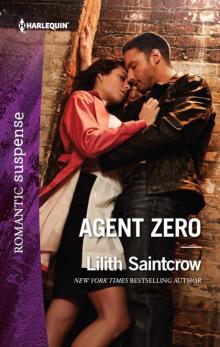 Agent Zero
Agent Zero In The Ruins
In The Ruins Atlanta Bound
Atlanta Bound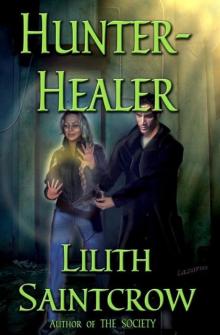 Hunter, Healer
Hunter, Healer Hunter's Prayer
Hunter's Prayer Roadtrip Z_Season 2_In The Ruins
Roadtrip Z_Season 2_In The Ruins Wasteland King
Wasteland King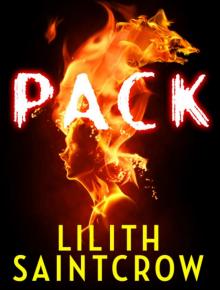 Pack
Pack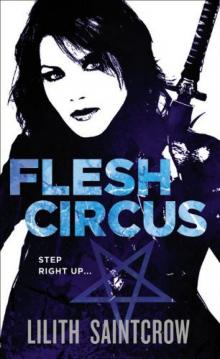 Flesh Circus - 4
Flesh Circus - 4 Trailer Park Fae
Trailer Park Fae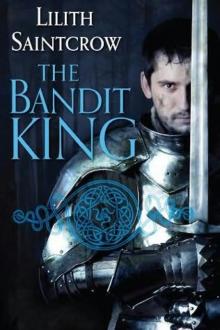 The Bandit King h-2
The Bandit King h-2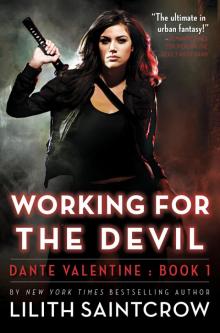 Working for the Devil
Working for the Devil Pocalypse Road
Pocalypse Road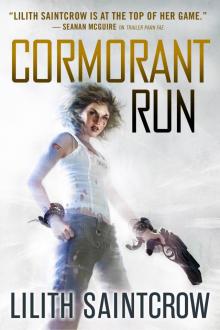 Cormorant Run
Cormorant Run Dante Valentine Book 5 - To Hell and Back
Dante Valentine Book 5 - To Hell and Back Desires, Known
Desires, Known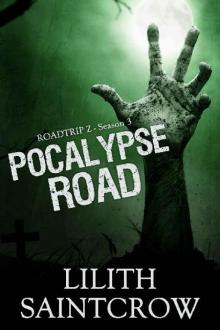 Roadtrip Z (Season 3): Pocalypse Road
Roadtrip Z (Season 3): Pocalypse Road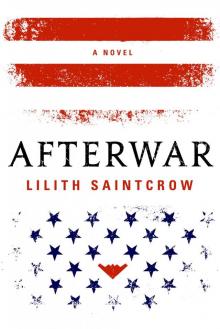 Afterwar
Afterwar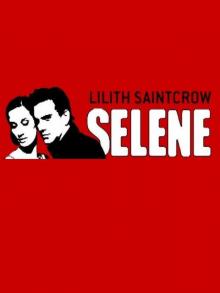 Selene
Selene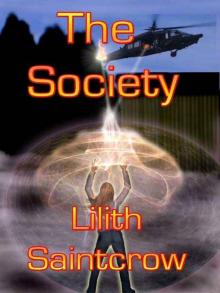 The Society
The Society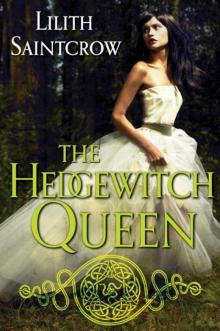 The Hedgewitch Queen h-1
The Hedgewitch Queen h-1 Night Shift jk-1
Night Shift jk-1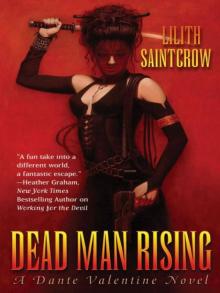 Dead Man Rising
Dead Man Rising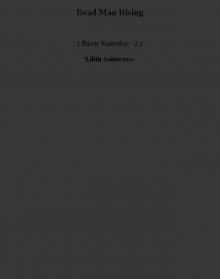 Dead Man Rising dv-2
Dead Man Rising dv-2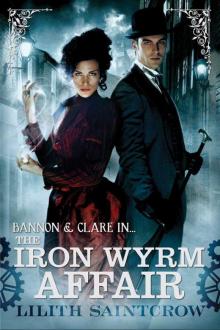 The Iron Wyrm Affair: Bannon and Clare: Book 1
The Iron Wyrm Affair: Bannon and Clare: Book 1 Saint City Sinners dv-4
Saint City Sinners dv-4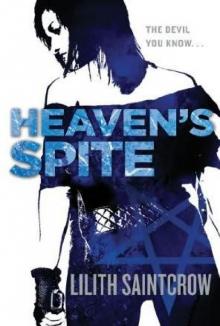 Heaven's Spite jk-5
Heaven's Spite jk-5 Beast of Wonder
Beast of Wonder Hunter's Prayer jk-2
Hunter's Prayer jk-2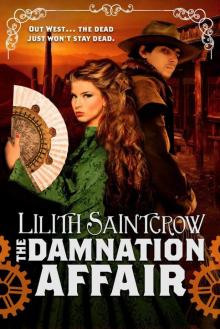 The Damnation Affair
The Damnation Affair Steelflower
Steelflower The Red Plague Affair: Bannon & Clare: Book Two
The Red Plague Affair: Bannon & Clare: Book Two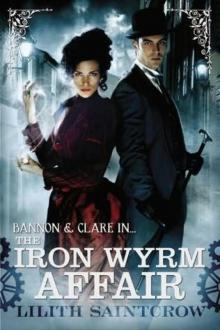 The Iron Wyrm Affair tb&ca-1
The Iron Wyrm Affair tb&ca-1 Flesh Circus jk-4
Flesh Circus jk-4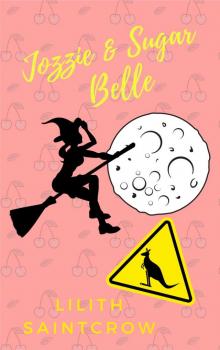 Jozzie & Sugar Belle
Jozzie & Sugar Belle Night Shift
Night Shift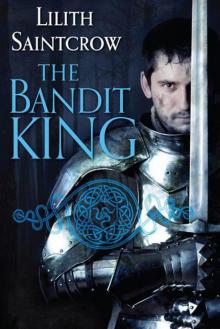 The Bandit King
The Bandit King![Hunter, Healer [Sequel to The Society] Read online](http://i1.bookreadfree.com/i1/04/05/hunter_healer_[sequel_to_the_society]_preview.jpg) Hunter, Healer [Sequel to The Society]
Hunter, Healer [Sequel to The Society]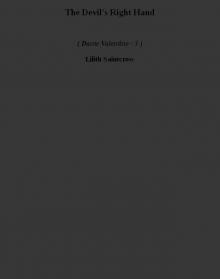 The Devil's Right Hand dv-3
The Devil's Right Hand dv-3 To Hell and Back dv-5
To Hell and Back dv-5 Angel Town
Angel Town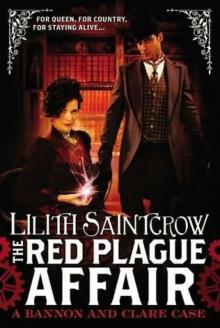 The Red Plague Affair tb&ca-2
The Red Plague Affair tb&ca-2 Redemption Alley jk-3
Redemption Alley jk-3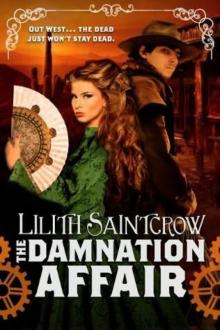 The Damnation Affair (the bannon & clare affairs)
The Damnation Affair (the bannon & clare affairs) Working for the Devil dv-1
Working for the Devil dv-1